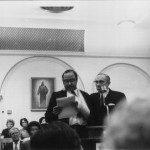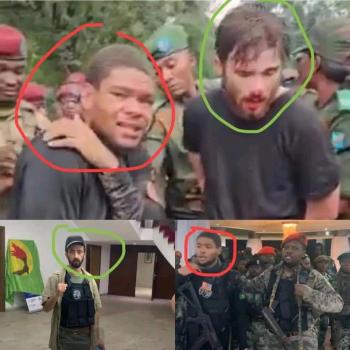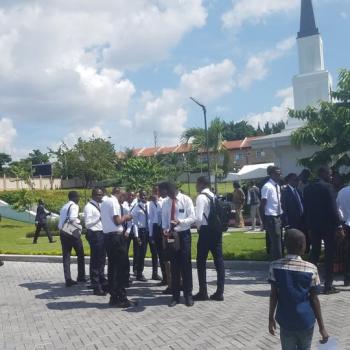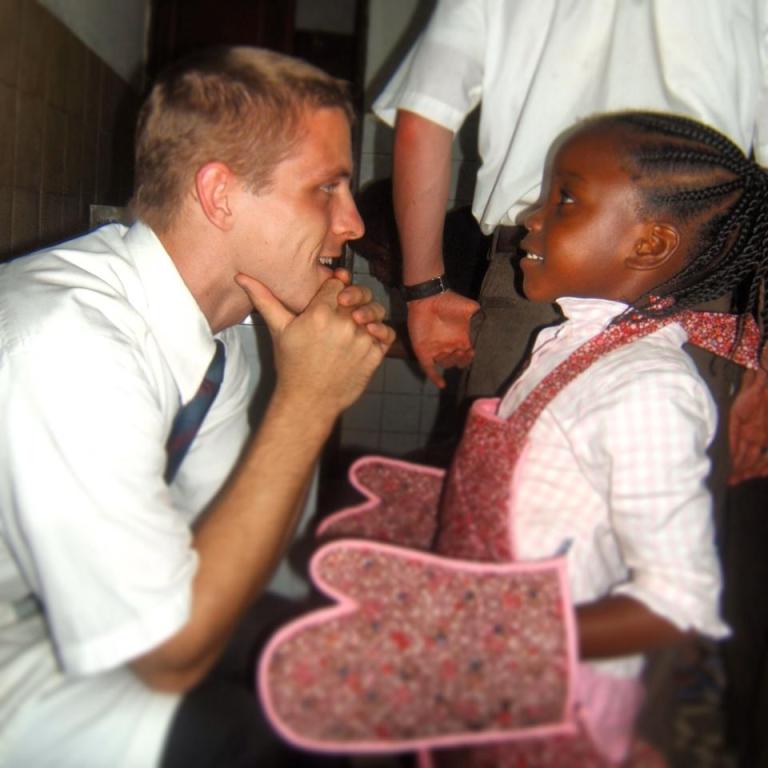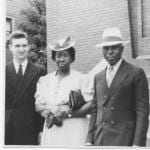 Following is an excerpt from the third book in the trilogy of historical fiction which Darius Gray and I wrote. The title is The Last Mile of the Way. The revised edition has a photo of Len and Mary Hope on its cover. The original edition has a photo of Darius Gray with his parents and sister.
Following is an excerpt from the third book in the trilogy of historical fiction which Darius Gray and I wrote. The title is The Last Mile of the Way. The revised edition has a photo of Len and Mary Hope on its cover. The original edition has a photo of Darius Gray with his parents and sister.
This excerpt happens after the baptism of Len Hope, shortly after the end of WWI.
His baptism had been in secret, but word got out soon enough. It wasn’t long at all before Len Hope had to stand up and get counted for being a Mormon. Not more than a few nights passed before uninvited riders called at that old sharecropper cabin.
Len heard horse hooves from a distance, like the pounding of hail. From the window, he could see the white-robed riders. He shut the curtain, but not before viewing some dozen Night Riders close up, all of them toting weapons—pistols, rifles, and sawed-off shot- guns. They were vengeful ghosts, tearing through the cornfield and trampling the crop.
Len’s brother, Tom, told him to hide. They both knew who these riders were calling on. But they also knew that if they didn’t open the door, the mob would likely burn their house to ashes—with them inside.
Tom opened the door slow. The boss-ghost’s eyes were just visible in the hood holes when he demanded that Tom fetch Len. They weren’t going to hurt the boy, Boss Ghost said; they only wanted to talk a word or two.
Tom was shivering. “My brother gone.”
“Don’t lie to me, boy. Get him out here.”
Len stepped out of his hiding place before Tom could protect him any more. “Seem to me if they wasn’t goin’ to hurt me, they’d leave the guns at home,” Len whispered.
A white hood showed through the back window when Len flicked a glance that direction. There was no escape. He walked onto the porch.
Straight off, Boss Ghost boomed through his sheet: “What hap- pened here, boy? You went over the seas and you learn a few things about the white folks and you want to come back here and join ’em, is that it?”
“No sir,” Len said. He could see one rifle aimed at his heart. “I been lookin’ into this Saints Church from way before I went over the seas. Done decided it was God’s Church, so I come back and joined. That’s the whole of it.”
Two more guns rose. There was a rope in one rider’s fist.
Boss Ghost said, “What if we mosey down the riverside and hang you from a limb and shoot you full of holes? Then you can get more information on religion.”
Muffled laughter came from behind the pillowcase hoods. “White men wanted to baptize me, sir,” Len said. “I never make no demand. I wouldn’t.”
“You think you know your place.”
“Yessir, I believe I do.”
“I told your brother we wasn’t goin’ to hurt you—tonight. I can’t promise about other nights. I am a man of my word, though, a Christian man, as this is a Christian cause. So let me recommend you get your name scratched off that church book, boy. Things can happen awful fast.” Boss Ghost turned to the other ghosts and said, “We’re done here. For now.”
I don’t guess you need to be told that Len took no slumber that night. First thing in the morning—which happened to be a Sun- day—he went to the Mormon church, where they were holding a conference. After the talks and prayer, he told the folks there what had happened, certain they’d hang their heads and scratch his name off the records right then. Instead, they met his report with the beautifulest smiles he’d ever seen.
The ginger-haired missionary who’d baptized him said, “Brother Hope, this is just the persecution of the devil.” Another Latter- day Saint man—dark enough to have some Indian in his blood— added, “We all have to endure this.” A skinny new missionary Len hadn’t seen until that moment said, “We can take your name off the records if it’ll save your life. You should know, though, your name is already written in heaven. You want us to erase it off the Alabama records? You can keep distance between yourself and this church and go on living.”
Len stood there, swallowing and thinking. Once his mind was made up, he answered: “If you folks can endure the persecution, why can’t I? Maybe I get hung from a limb and shot full of holes, and Jesus take me if that happen.”
“You sure you’re set on that?” asked the ginger-haired one.
Len was not a big man, but he felt big and certain when he replied, “I want my name where it can get read in Alabama and Salt Lake City and in heaven too. Leave it be.”
Well, he full expected another visit from the Night Riders, but none came. None ever came again, and he never did have his name scratched off the Church record, no matter the difficulties he faced. Of course, he wasn’t the only one to face such troubles. Towards the end and right after World War I, many Negroes who’d fought in Europe got attacked, and a high number got murdered. St. Louis erupted in a race riot, and before long, the Ku Klux Klan was having its heyday. The summer Len Hope got baptized came to be called “Red Summer,” for there were antiblack riots in at least five states. Even in Utah, The Birth of a Nation was seducing crowds to watch a white woman throw herself off a cliff rather than get abused by a black man. The Klan was looking heroic to folks with fair skin around their bones and fear coddled in their hearts.
Heber Grant was president of the Church by then, and he spoke bold against the Klan, asking Mormons to not align themselves with any such a group. Nonetheless, Kluxers paraded down Salt Lake streets in their white robes and even burned crosses on Ensign Peak, that sacred spot that once had been a temple.
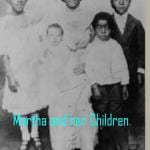 Several of Martha Perkins’s children saw those crosses burn on a winter night. Lucile, a teenager now, asked her mama if the moun- tain was afire. Martha just shook her head and murmured, “Even in this place, Lord. My Jesus, even here.”
Several of Martha Perkins’s children saw those crosses burn on a winter night. Lucile, a teenager now, asked her mama if the moun- tain was afire. Martha just shook her head and murmured, “Even in this place, Lord. My Jesus, even here.”



